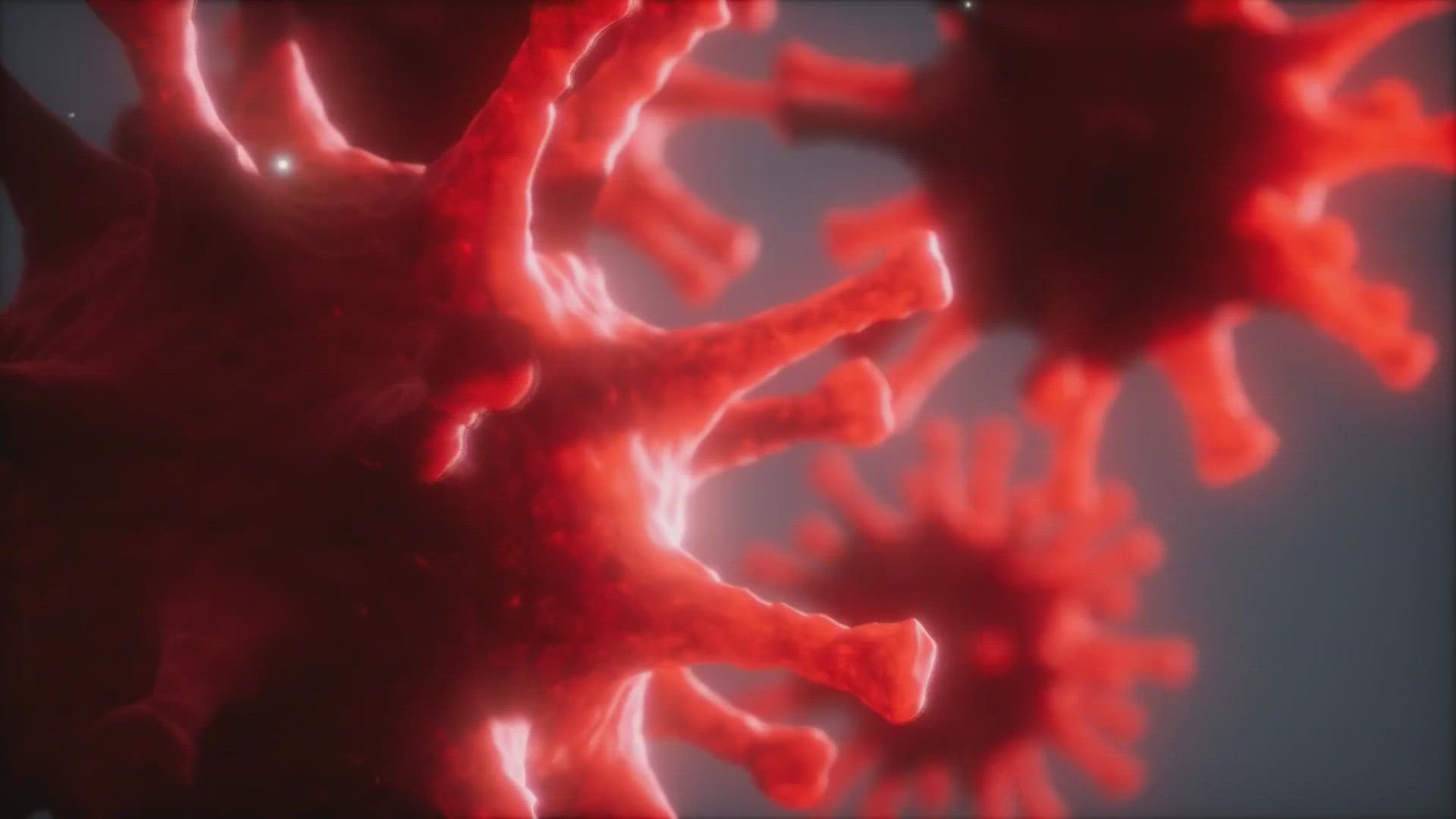NEW ORLEANS — As Louisiana battles the Delta Variant, health officials are watching closely AS new variants are emerging.
Two mutations have been found in the U.S., one of which is in Louisiana.
"It's pretty clear now this virus is evolving fairly rapidly because it has access to a lot of people," Dr. Lucio Miele, MD, PhD with the LSU Health Genetics and Precision Medicine Lab said.
One is called the Lambda Variant, and according to Dr. Miele, at least one case has been reported in Northern Louisiana. The other is so new, it's only known now as B.1.621.
"It has already caused one small outbreak in the United States," Dr. Miele said. "So, what we're going to have to see over the next few weeks is how these variants compete with Delta, which is now the dominant one in the United States."
Dr. Miele, who plays a key role in finding variants across Louisiana, says that's because the Delta variant is proving to be very strong, even mutating into subvariants.
"Because Delta is so good at out-competing other variants, it's having children," he said. "There's the real possibility that one of its children will be better than the parent."
Still Lambda and B.1.621 are of interest since they could be more contagious than Delta, and could be partially resistant to the antibodies created by vaccines.
"What that means is, if you're not vaccinated, or maybe you had COVID a long time ago and you have a few antibodies left, or if you were vaccinated a long time ago, your immune system may not withstand this new variant," he said.
It's why experts say getting vaccinated is key. Because not only is it proving to help keep people alive if they test positive, it'll also reduce chances of virus mutation.
In other words, the more people vaccinated, the less likely there will be new variants. And on a side note, Dr. Miele says vaccines can also help prevent long-haul COVID.
"The most recent data shows at least one in four people who contract COVID will experience long haul symptoms from long-term damage to various organs," he said.
He describes the mutations as evolution in action.
"I mean, this is going to keep happening, it's not going to stop as long as the virus can spread from one person to the next," he said.
And as officials watch this ever-evolving situation, they hope people will take that advice to heart, and protect themselves and those around them.
Dr. Miele also says the mutation rate seen so far with the Coronavirus shows it can generate more than 24 major variants a year, or two a month, which could be a big problem if vaccination rates stay low.
Again though, he says the more people vaccinated, then the less likely those mutations will happen.

